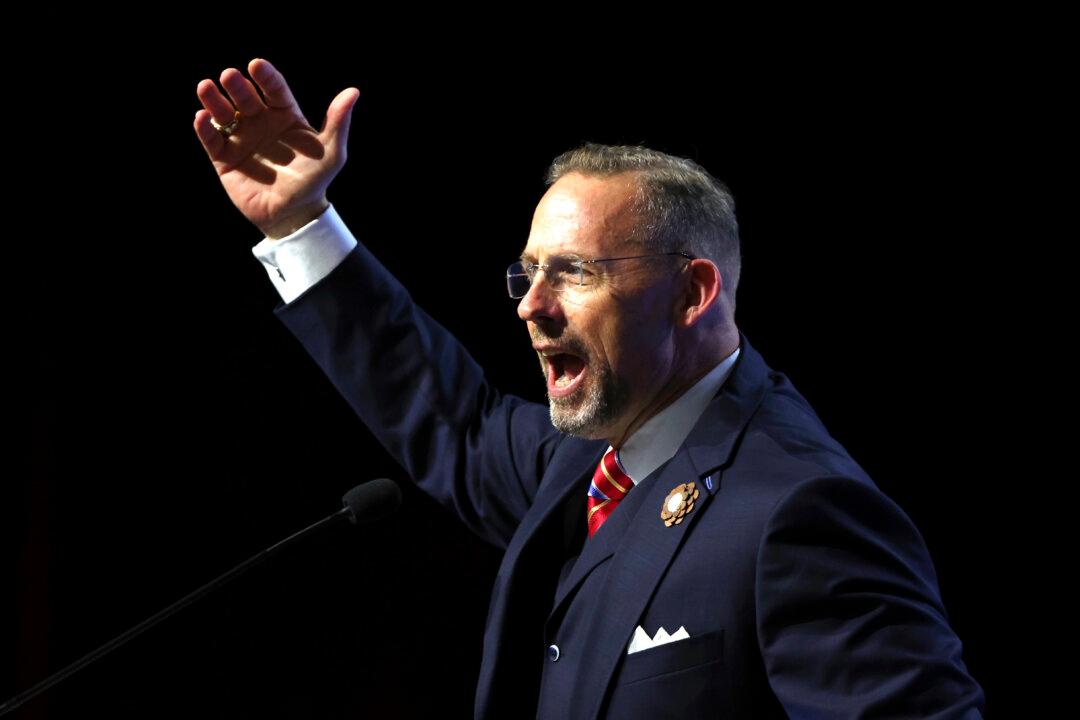The Southern Baptist Convention on June 10 voted overwhelmingly in favor of a resolution encouraging the overturning of a U.S. Supreme Court ruling that labeled same-sex marriage a federally protected right in 2015.
A subsequent provision reads, “We call for laws that affirm marriage between one man and one woman.”
In a video from the convention, a sea of green slips—used for voting on proposals before the convention—could be seen in support of the resolution, which broadly tackles a series of issues related to sex, gender, and other controversial social issues. No green slips were visible when leaders asked if anyone opposed the resolution.
While Southern Baptists have long opposed gay marriage in the United States, the resolution, with its explicit call to overturn the Supreme Court decision on the issue, is a first for the convention.
Obergefell v. Hodges, decided in a 5–4 ruling in 2015, determined that state laws prohibiting individuals of the same sex from marrying violated the due process clause and the equal protection clause of the 14th Amendment of the Constitution.
However, the recent overturning of Roe v. Wade—which relied on similar court precedents around due process and equal protection—has led to questions about the fate of decisions like Obergefell and others, such as the Griswold v. Connecticut decision that ruled access to contraception a constitutionally protected right.
Nevertheless, the Supreme Court indicated in Dobbs v. Jackson Women’s Health Organization—which overturned Roe v. Wade—that other decisions relying on due process and equal protection precedents such as Obergefell and Griswold were not targets for the court.
“Nothing in this opinion should be understood to cast doubt on precedents that do not concern abortion,” the court wrote in its decision, responding to fears that the decision would “threaten the protection of other rights under the Due Process Clause.”
The Southern Baptist resolution also urged the adoption of laws that “recognize the biological reality of male and female, protect children’s innocence against sexual predation, affirm and strengthen parental rights in education and healthcare, incentivize family formation in life-affirming ways, and ensure safety and fairness in female athletic competition.”
The resolution also criticizes the “normalization of transgender ideology—especially the participation of biological males in girls’ sports and the medical transition of minors.”
It also takes a strong stance against commercial surrogacy, describing a situation in which a woman is paid money to carry another couple’s baby to term.
Such commercial surrogacy “treats children as products and women as a means to an end, and may entail the destruction of embryonic life, violating the dignity of human life and distorting God’s design for procreation within marriage,” the resolution reads.







